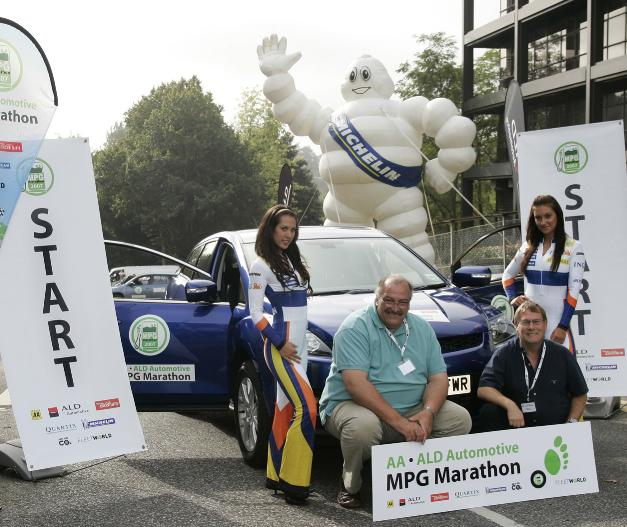In May 2004, Honda launched a brand new 2.2-litre turbo-diesel version of its Accord saloon. As part of the launch activity, with the help of Italian-based JAS Motorsport, which handled fuelling and pit-stops, a two-car team headed by top British racing driver, Robin Liddell, and ‘yours truly’ spent 24-hours at a private test facility in Papenburg, northern Germany, prior to driving 419-miles in the same cars to Wiesbaden, near Frankfurt. The objective was to establish both speed and fuel economy records.
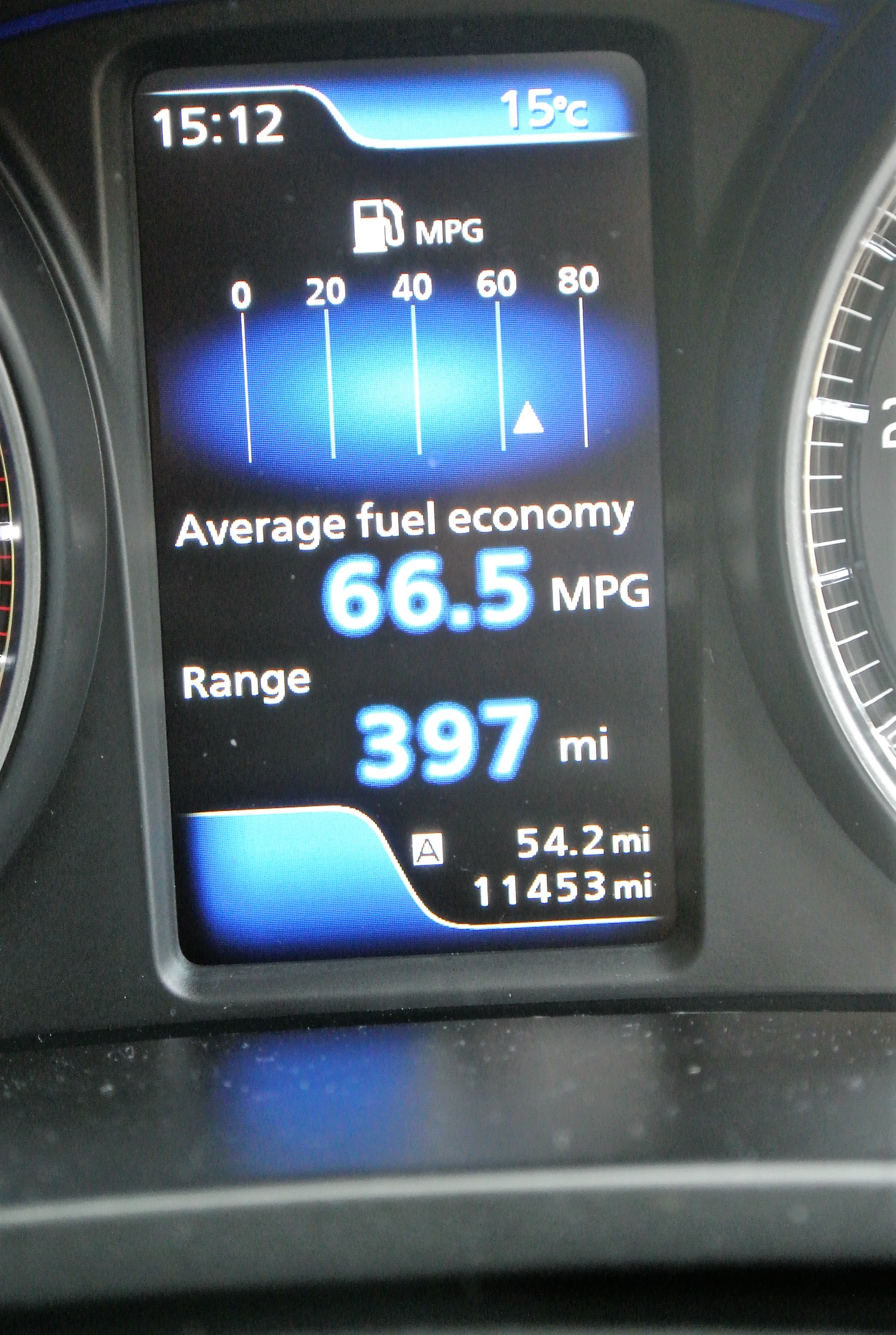
No less than 19 World Records were set in Production Car Class B (2000-2500cc), with highlights that included a 133.115mph maximum speed and an average speed for the 24-hours endurance test of 130.379mph. The cars were completely bog-standard, having been selected by FIA officials from Honda’s production line. The only modifications allowed on each car were the addition of a safety roll-cage, racing harnesses and a car-to-pit communications system. Refuelled at Papenburg, the tanks were sealed and, next day, we set off on a cross-country drive to Wiesbaden, where another record was established for overall fuel economy of 94.2mpg, or just over a third of Honda’s tank of diesel.
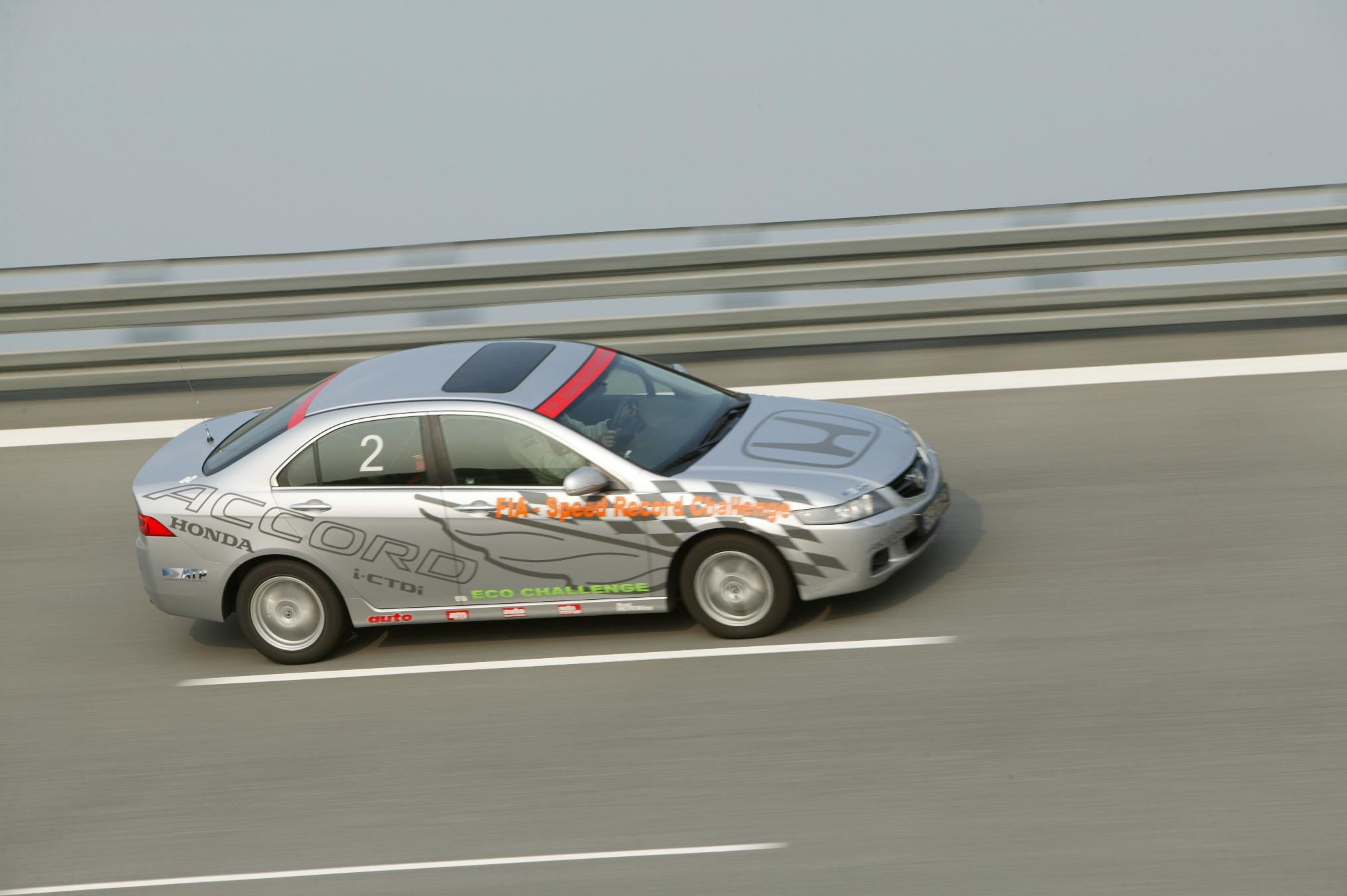
While I cannot deny that ‘grabbing an aerodynamic tow’ on the German autobahns and learning the names of almost every European trailer manufacturer were ‘tricks’ that I would not advise to other road-users, at no time was the ignition turned off during the test and our average speed in excess of 56mph for the economy drive was truly exemplary. Yet, five years later, driving an unmodified Mazda3 MPS (a 260bhp high-performance petrol model), accompanied by my skilled navigator, Rob Marshall, we were declared outright victors in the Fleet World/ALD/Total UK MPG Marathon, having returned 41.75mpg (a 43.48% record increase over its Official Combined figure), over a 353.5-miles road route.
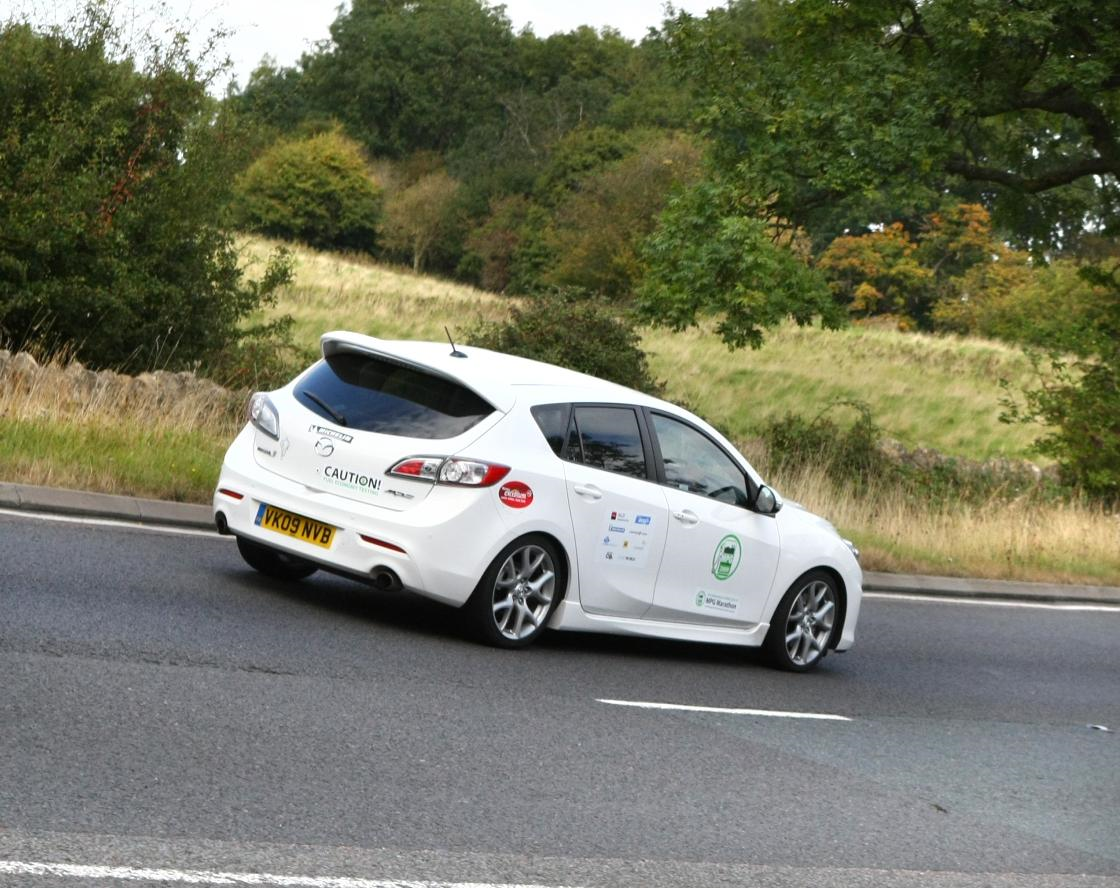
While MPG marathons have been held for several decades in the UK, mostly in pursuit of fresh frugality records, the skills essential to maximising a vehicle’s efficiency lie within the grasp of each of us. While they do demand concentration, copious advance planning, some mechanical sympathy and the ability to read a route’s geography, there is a list of useful economy driving tips that we can all put into practice, even on a daily commute.
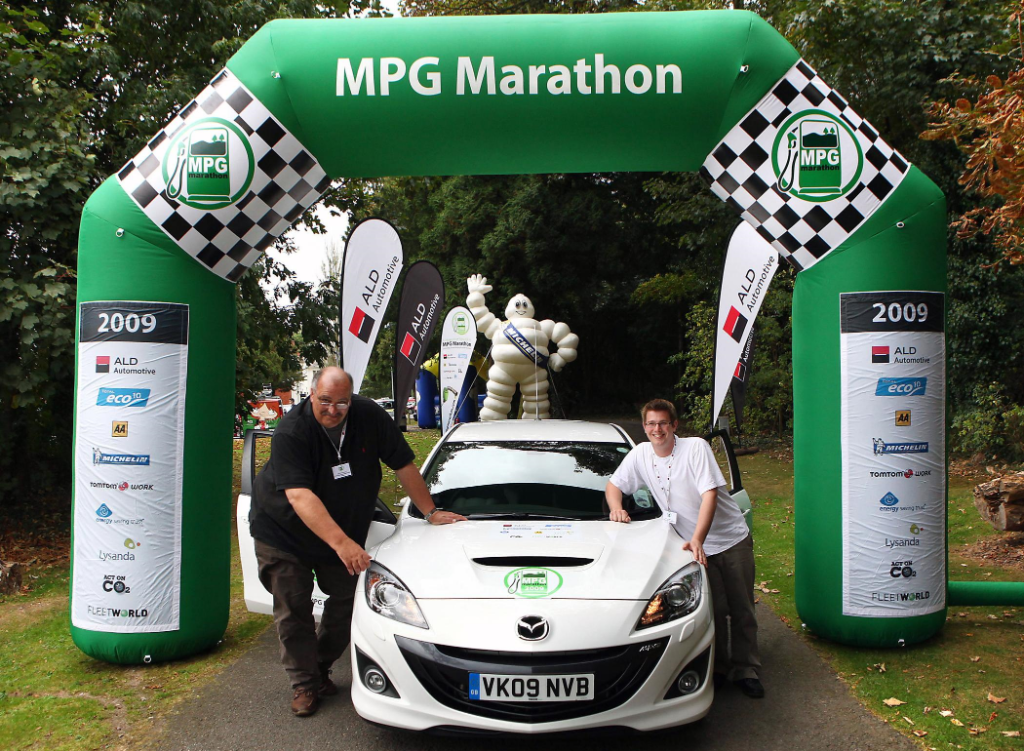
Fuel-saving tips:
1. AVOID warming the engine, even on cold mornings
Modern engines will always warm speedily, if driven carefully from cold. Bear in mind that exhaust emissions are at their worst when cold, or at idle, therefore it is always better to get moving as soon as possible.
2. AVOID full-throttle applications and plan overtakes patiently
Always accelerate to the speed at which you intend to travel and then back-off to feather the throttle pedal (imagine you have a fresh egg below the pedal that you do not wish to crack!). Travelling at 55mph, instead of 60mph, can add up to 5mpg to your target but will only add 5mins to your journey time.
3. AVOID constant gear-changing
Most modern cars will pull 30mph in top gear at around 1,000rpm. Accelerate firmly to your intended cruising speed (do not use cruise control) and hold it there. However, also avoid labouring the car. Driving around town in third or fourth gears, on a whisker of throttle, can prove more frugal than you might think.
4. PLAN ahead
If you arrive at traffic signals, or a railway crossing, just as the stop sign appears, switch off the engine but switch the ignition on to ensure that your own brake-lights remain visible for safety reasons. If you reach an uphill stretch of road, downshift into the gear that will clear it but, as soon as the road levels, return to top gear. Do not use the gears on downhill sections but avoid heavy braking to maintain a speed. All modern cars feature fuel-stop devices, as soon as your foot leaves the accelerator pedal; a point worth remembering.
5. AVOID harsh, or sudden, use of controls; drive smoothly
Severe braking, jagged steering and harsh cornering will eat into your fuel economy intentions. Keep it smooth and progressive and you will receive neither complaints from passengers, nor pain from the car, and you will arrive at your destination more relaxed into the bargain.
6. AVOID opening windows and leaving them open, while driving
Clean airflow around the car is essential to attaining good fuel returns. A driver’s window cracked open for ventilation can cost between one and three mpg by the end of a trip. Using the car’s air-con constantly can also cost upwards of two to three mpg, although some climate control systems can be significantly more fuel-efficient.
7.AVOID using all of the car’s electrical devices
Naturally, you may need to use the demister to clear condensation, or the wipers to clear rain and mist, but, once the screens are clear, switch them off. The greater the drain on the car electrics, the greater the demands on the generating system, which will cost more mpg.
8. Use PREMIUM fuel, rather than poorer grades
While there is a cost implication to refilling your car’s fuel tank with 98/99 octane petrol, or higher-grade diesel, rather than the standard types, the car will run smoother and may even gain you one, or two, mpg as a bonus.
9. AVOID over-inflating your car’s tyres
Usually you can find the recommended tyre pressures on a door jamb, behind the fuel flap but, certainly, in the Owner’s Manual for your vehicle. If you inflate them to but not exceed the maximum load pressure stated, you can optimise your fuel economy intentions, without incurring safety issues.
